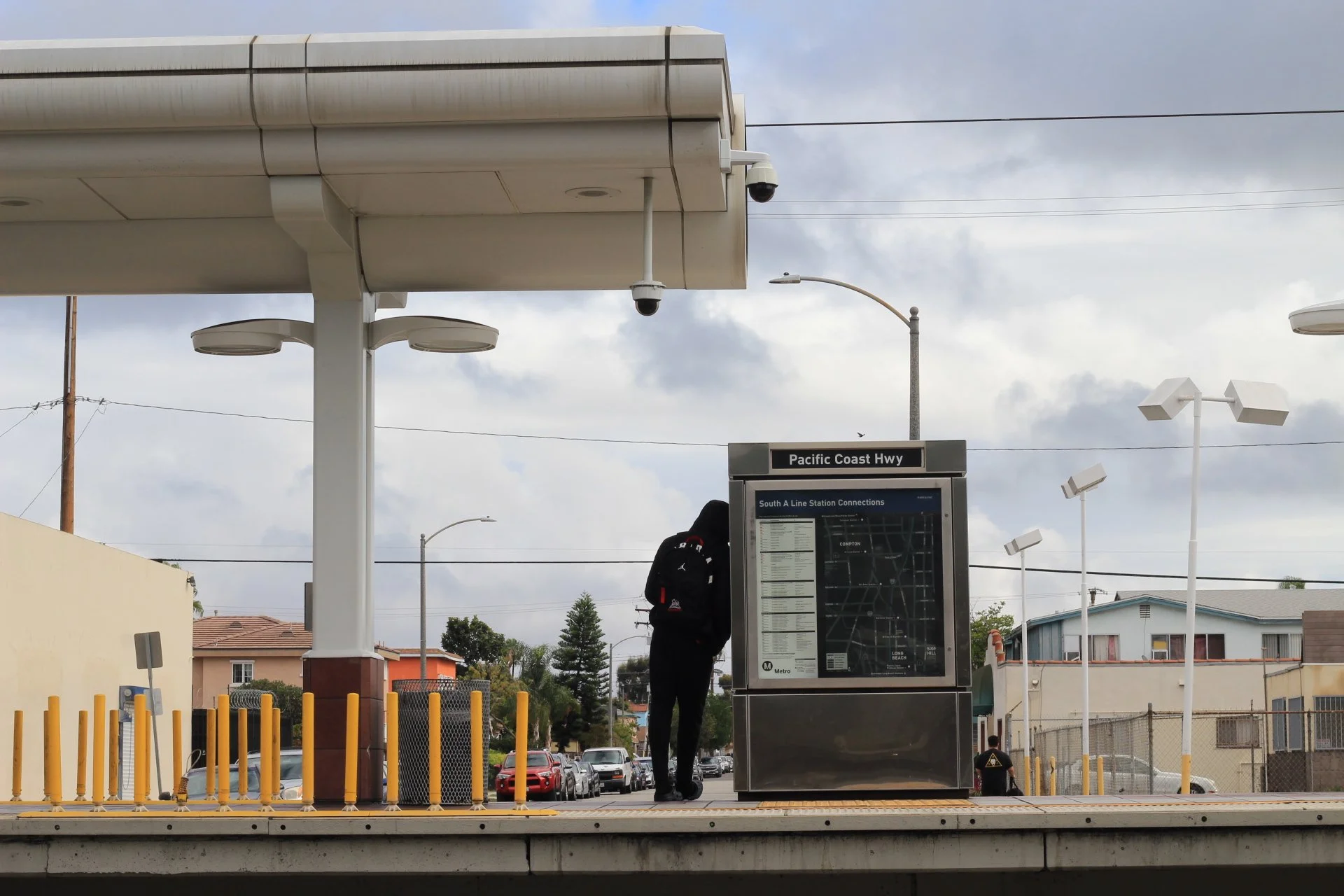Hotel Housing for the Houseless
Photo by Andrea López
66-year-old Undre Porter said that he had never really been one to just take things; he struggled with reaching out for help, even when being unhoused, for the same reason.
“I think it has a lot to do with ging, my mom and dad raised me and my sisters to be independent,” Porter said.
Porter has been unhoused for about 5 years, but it wasn’t till earlier this year that he allowed himself to get help. Porter recalls being at the hospital after an undisclosed injury when a woman from across the room overheard him saying that he had nowhere to go and put it upon herself to help as much as she could.
“I don’t even know how she heard me when she was in another room, but she did and she was like ‘don’t you let him go,’ I honestly think she was an angel,” Porter said.
The woman, with help of the doctor, referred Porter to the Holiday Inn on Atlantic Boulevard, in Long Beach, a Project Homekey location where Porter and his beloved dog, Sassy, have been living since April 2022.
“It’s just really nice to have your own room and I’m just so grateful, especially because they accepted me and my baby,” Porter said.
As per data from the Long Beach Health Department, there are currently 3,296 people experiencing homelessness. Of those, 2,287 are living in unsheltered situations and 1,282 in emergency shelters and transitional housing.
Project Homekey is a “statewide effort to sustain and rapidly expand housing for persons experiencing or at risk of homelessness," according to the California department of housing and community development.
During the pandemic, the Department of Housing and Urban development along with the state created Project Roomkey, as a resource for unhoused folks most vulnerable to Covid-19 across LA county. When the program first started, nine of the sites were going to be used as temporary housing sites.
Long Beach locations purchased as part of project Roomkey include the Holiday Inn Porter is currently staying at, the Best Western on Long Beach Boulevard and the Motel 6 on 7th street.
As the pandemic has dwindled, the focus of the program has shifted from being Covid-19 centered to an attempt to combat chronic homelessness. Hence, Project Homekey was created to provide additional resources and housing opportunities quickly.
All Roomkey locations are currently being used as shelters but the Holiday Inn and Motel Six are about to go through conversion to permanent housing through the county according to Long Beach Homeless Services Bureau Manager, Paul Duncan. He said there isn’t a current timeframe for the conversion of the Best Western hotel but the city plans to start sometime in the next couple of years.
“Our plan is to eventually convert; we don't quite have a timeline yet but we're working on developing our plans on what that conversion will look like and the timeframe,” Duncan said.
According to the Long Beach Post, the number of affordable housing units has increased with 124 units being added since 2020 in part thanks to state Covid relief funds granted throughout the pandemic. In August 2022, the city was awarded a $30.5 million grant to further fund several homelessness combat efforts like Project Homekey as well as the building of new tiny houses.
Some of Long Beach’s most recent hotel purchases include the purchase of the Luxury Inn—labeled as a nuisance hotel due to its high number of safety calls—for $16.6 million.
One of the biggest challenges Project Homekey faces according to Duncan is the cost and time burden of renovating the hotels. He mentioned that it was easier to purchase motels before the pandemic but that asking prices have gone up since the project started as motel owners talk among each other.
Additionally, since most of these motels are not in the greatest condition or not designed with shared living amenities such as a kitchen, the conversion to permanent housing becomes a slower and more expensive process.
“These are all things we're assessing and finding the right-fit building that is really conducive or the right plan that is going to allow for the capacity and need can be challenging,” Duncan said.
Despite the challenges, Duncan believes Project Homekey changes some preconceived myths that people don't want shelter.
“Most people are not turning [the opportunity for shelter] down, what they're saying is ‘I don't feel comfortable living in a space where it's a bed, and a room with 30-40 other people and I've got to share facilities with them,’” Duncan said.
Project Homekey offers not only shelter but a sense of independence and individuality as residents have a space that is entirely their own.
“If we have a wide range of settings that meet different needs, we're able to engage people that maybe weren't all that interested in the past,” Duncan said.

